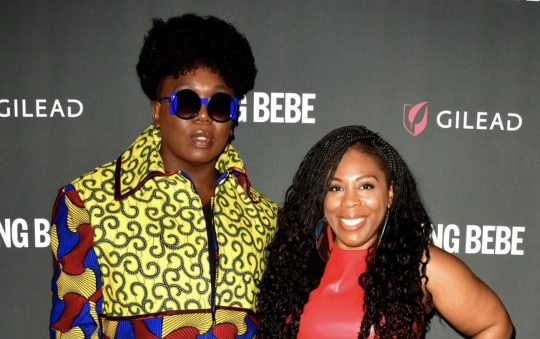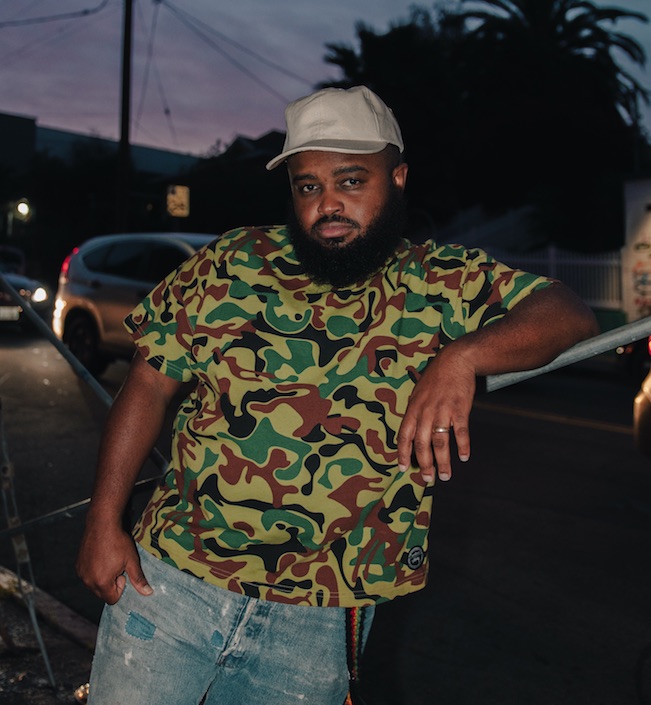
From August 23-August 29, 2005 Hurricane Katrina ravaged through the state of Louisiana and the gulf coast leaving over a billion dollars in damages, hundreds of thousands of people displaced and over 1,800 lives lost many a result of drowning in storm water that was over twenty feet deep in some areas of the city. Nine years later, though the waters have receded, many homes remain abandoned, hundreds of bodies unclaimed and the city is still in the midst of rebuilding.
When I was first given the assignment of covering Hurricane Katrina: Nine Years Later, as a New Orleans native, I was immediately disinterested as I did not want to be exploitative of my city. I didn’t see the necessity of asking people to relive their trauma and probably the worst years of their lives for the purpose of a sensationalized news article. I still cringe when friends and family members reflect on being trapped in their attic, waiting for a canoe to row by and rescue them off their roofs.
If you were looking for a disparaging story about the city of New Orleans, this isn’t it. There are already a plethora of reproachful stories highlighting the crime, conspiracies and corruption in the city. I chose to write this story from a perspective of young professionals who have decided to live in New Orleans. A generation that didn’t relocate but instead are our budding activists and community leaders. They are taking the opportunity to help rebuild their community and the city’s infrastructure through their careers in the legal and political realms.
The young professionals tasked to give their personal and professional insight on the current state of New Orleans were Brandi Ebanks age 25, Economic Development Policy and Program Manager in the Mayor’s Office of Economic Development for the City of New Orleans, Sierra Spears, 24, Legal Assistant/Paralegal for Aaron and Gianna, PLC, ranked a Best Law Firm by U.S. News and World Report and Best Lawyers.And Brandon Oliver, 25, Legislative Aide and Staff Assistant for New Orleans City Council District E. They each discuss their reasoning for staying in New Orleans, what they believe the city needs to do to be more progressive and they also give their insight on how New Orleans has continued to flourish nine years after the storm.
LAS: Why did you decide to stay in New Orleans after college graduation and what are your goals for being here?
Sierra Spears (SS:) After obtaining a B.A. in Political Science from Dillard University, I decided to reside in New Orleans because of my unparalleled passion for the city and the people that live here. The culture is unique; the vibe is ethereal.
I’m from an underdeveloped area, and rather than allow myself to be marginalized because of that, I perceive it as an honor. It makes me stronger. In that regard, New Orleans and I are correlated because of our determination and resilience. As a result, I hold New Orleans near to my heart. New Orleans is the ultimate story of the underdog; the epitome of the “American Dream.” This city has shown the world how to overcome adversity. Oftentimes, young professionals are encouraged to move away. However, I resolved that it’s best for me to stay and contribute to the home front. I would personally prefer to be of service to the city and state that raised me. Ultimately, that’s what influenced my decision to stay here. I would like to work as a civil attorney in the future.
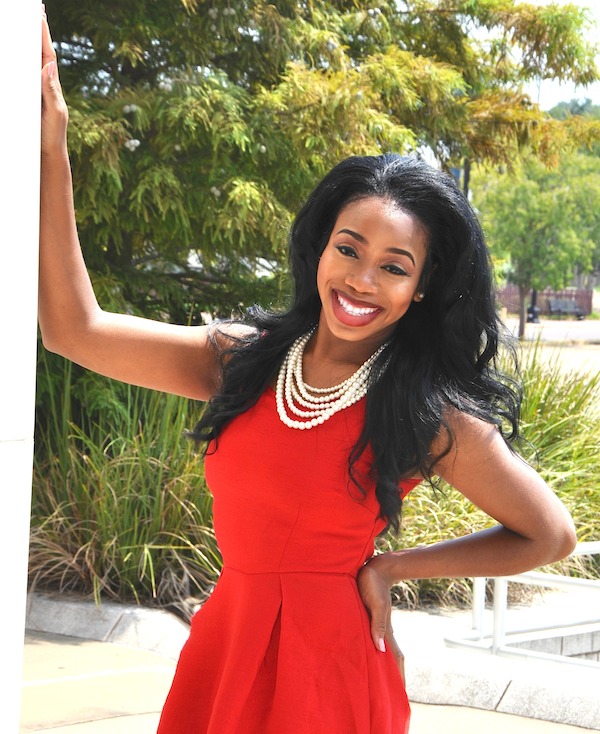
LAS: For young professionals that may be interested in relocating to New Orleans, what do you want people to know about the city?
Brandon Oliver (BO): Right now New Orleans is at a turning point. We’re experiencing a ‘brain gain’ as opposed to a ‘brain drain.’ New Orleans has become a major startup city for small businesses.
Many of the university’s that are anchors here including Tulane University, Xavier University, Dillard University, Loyola University, the University of New Orleans and Southern University of New Orleans have expanded their campuses. These institutions are graduating individuals many of whom have decided to continue to live in the city. I’ve noticed that recent college graduates have replenished a lot of our population post-Katrina.That’s one of things that’s actually helping our city to succeed in being more progressive.
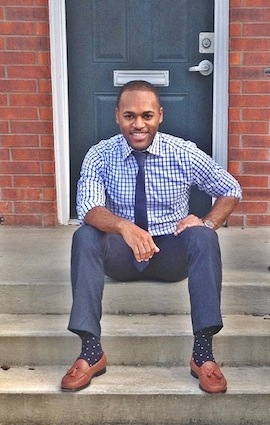
Brandi Ebanks (BE): Living here, you get the best of both worlds: a city filled with bright minds and hard-working people mixed with southern flare and a rich culture. New Orleans is the place to come and literally make your dreams into a reality. It’s a unique space filled with people that know first-hand what it is like to be faced with the gargantuan task of rebuilding and not back down. Residents of the city are fearless and embody what it takes to build the American dream. The reason why New Orleans is rebounding the way that it has is because we do it together. It’s one giant hard step at a time but we do it. In New Orleans there’s always someone who is going to say, ‘hey I believe in your idea, maybe I can help with that.’ There’s always going to be that “lagniappe” (French for “something extra) that helps you to take your business venture that much further.
In New Orleans we’re so focused on building up the middle class and continuing to ensure that it’s a livable city for individuals from all walks of life. If I could tell anyone anything about New Orleans it would be that it’s a true American Dream city. The residents here are some of the hardest working people I have ever met, we’ve just mastered the art of having the time of our lives while doing it.
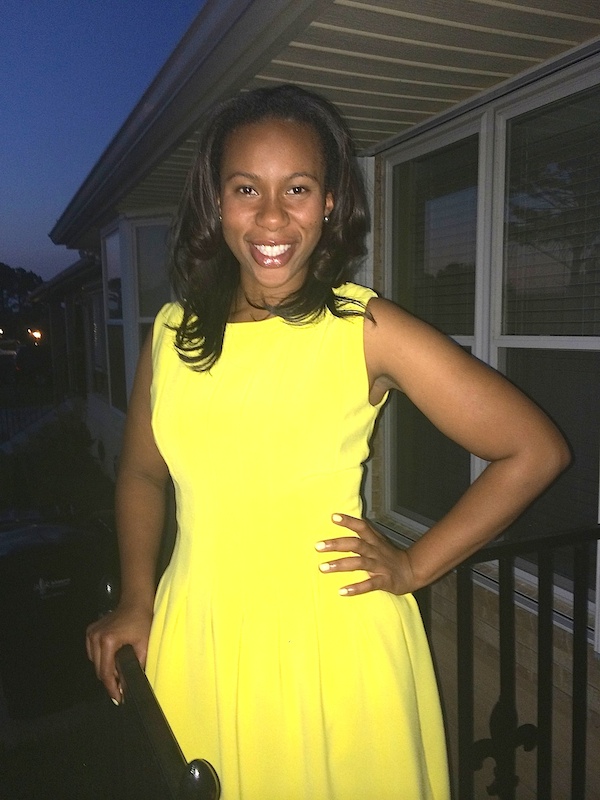
LAS: What challenges keep New Orleans from being more progressive?
SS: There are various economic and infrastructural challenges that lie ahead for New Orleans. My perspective can be summed up by Ralph Marston’s aphorism,“being positive in a negative situation isn’t naïve, it’s leadership.” Therefore, despite the hurdles that exist, I’m completely optimistic regarding the direction we’re going in as a city. However, my enthusiasm doesn’t impede on the reality that certain issues demand immediate attention.
In my opinion, one particular field that needs to be properly addressed is education. I think that raising the academic bar, in a way that is fair, would enable residents to embrace new customs. Cultural reformation through academic advocacy can keep our youth out of the streets, and instead provide them with more constructive options. I believe a better academic system would drastically deter the crime rate. Also, socially, we need a greater since of solidarity in connection with issues that affect the economically disadvantaged population of New Orleans. The fight for progression must be collective in opposition to individual. Just because you’re doing well doesn’t mean everyone is doing well. We can’t forget our moral, social obligation to strive for the common good.
LAS: What drastic changes have you seen in the city?
BO: Since the storm, New Orleans has implemented a different type of housing system. Many of the public housing developments that were here pre-Katrina have been demolished and redesigned. The former St. Bernard Public Housing Development is now Columbia Parc, which is basically a mixed income housing development. Before the storm, New Orleans concentrated a lot of poverty upon poverty in the high-rises of the projects, which resulted in a lot of crime. Since the storm, New Orleans has a different type of housing system. The former Magnolia Projects is now Harmony Oaks, which is luxury living at a decent price. The last development to be torn down was the Iberville Projects. It was also reconstructed into a mixed income development. The city is changing the way she does business. I’m loving the new New Orleans and that’s why I have yet to leave.
Seeing some of the economic development that’s taken place, and seeing leadership that has a passion to really transform this city and show America that New Orleans is one of the best places you can live, it helps my morale. It lifts me up. When it comes down to the city itself and the culture evolving, I can honestly say that many things are changing for the better.
LAS: Brandi, you went to graduate school in New York at Cornell University. Why not continue to build your resume and network in a larger market like New York?
BE: I had several job offers in New York post graduation and I turned them down because this [New Orleans] is where my heart is. As an adult that needed a job, I know it’s not always about where your heart is, it’s about making smart career moves. However, I knew that if I wanted to help New Orleans, I needed to know her in a way that no one else could. My time in New York gave me the tools I needed to address issues faced by New Orleans; however my first-hand knowledge as a native is what gives me a comprehensive view of the city. Working to make the city where you were raised a better place is a unique work experience, in my opinion.
We, as native New Orleanians, are strongly connected to this city and its history, we self-identify with it; therefore I feel a great amount of responsibility for the well-being of the city and this permeates through my work. When I finished at Cornell New Orleans called me home. She wanted me here and I’m here to help her.
LAS: Is it necessary to commemorate Hurricane Katrina every year?
SS: Having experienced the loss of all of my material possessions in the storm, I personally think that an experience of that magnitude should never be forgotten. After all, those that forget the past are destined to relive it. We should always pay tribute to the lives lost, locally, in my opinion. However, I no longer see the need for a national commemoration for Hurricane Katrina ever year, especially since many other states have experienced catastrophic events as well.
Internationally, New Orleans served its purpose as a model of what to do when confronted by a natural disaster. After Katrina, the nation learned not to take fierce acts of nature lightly, to prepare statewide evacuation plans, etc. Therefore, I think nationally, the commemoration has run its course.
However, on a local level, I do believe that Hurricane Katrina should be honored because it has inevitably impacted our culture. Every August, we’re going to remember what happened for the rest of our lives. As a result, domestically I think that we should reflect how far we’ve come since the storm, pay homage to the lives loss, and celebrate our city annually.




